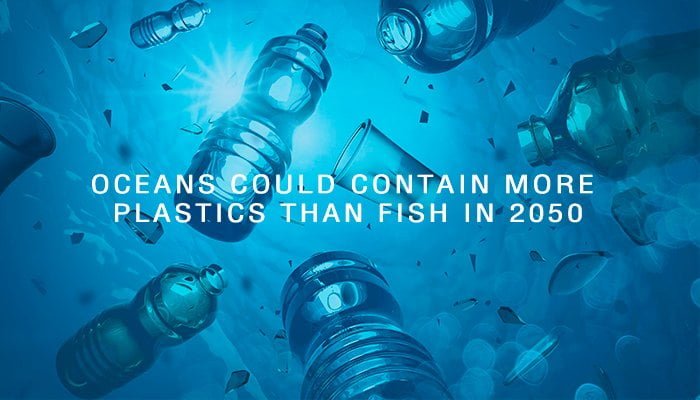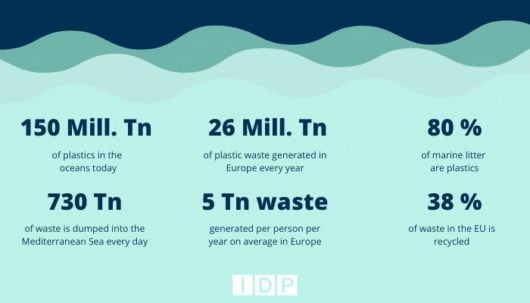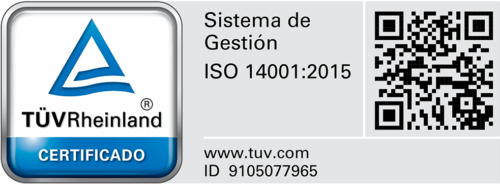Oceans could contain more plastics than fish in 2050


For years, the amount of plastic waste in the oceans and seas has been steadily increasing. “If we don’t change the way we produce and use plastics, there will be more plastic than fish in the sea by 2050”. This is what Frans Timmermans, vice-president first of the European Commission and in charge of leading and coordinating the work on the European Green Pact, said more than four years ago. “The only long-term solution is to reduce plastic waste by increasing recycling and reuse”.
Plastics not only pollute coastlines, but also affect all marine wildlife. Animals become entangled in them and mistake the smallest fragments for food, which can lead to poisoning and death. Humans, due to the food chain, also ingest this material, with possible consequences for our health.
Along these lines, some chilling data:


Managing waste in an environmentally friendly way, stimulating innovation in recycling, encouraging circularity and making use of more environmentally friendly secondary materials are some of the key elements to achieve the transition to a competitive, resource-efficient economy that promotes the creation of a sustainable and respectful environment for our planet and those who inhabit it.
We understand that social progress, environmental balance and economic growth must go hand in hand. lsThis is why, since 2017, we have been contributing to the achievement of the Sustainable Development Goa (SDG), 17 Universal Principles approved in 2015 by the UN in the 2030 Agenda, and we have defined a strategy based on ESG criteria, which refer to environmental, social and corporate governance factors.
Each year we work to include new measures in line with these objectives, with the aim of having a positive impact on the health and well-being of people and the environment. Some of the measures adopted are:
- All of our energy consumption comes from renewable energy sources
- We measure our carbon impact on a quarterly basis, and implement measures to progressively reduce it.
- We promote a “zero paper” policy to minimise printing on paper and use certified recycled material.
- We value 100% of the waste we generate in the development of our activity (paper, toners and WEEE).
- We encourage recycling in the offices with specific spaces and containers for each type of waste generated.
- Eliminating single-use plastic in the office:
- We install water fountains
- We replace plastic coffee cups with recyclable cardboard cups.
- We replace plastic bottles at meetings with glass cups.
We are convinced that the right way forward is to continue working to reduce and recycle waste. But all these measures cannot bear fruit without the commitment of all the people who make up the IDP Group.
¡Go for sustainable development, reduce, recycle and help reduce the world’s waste!









